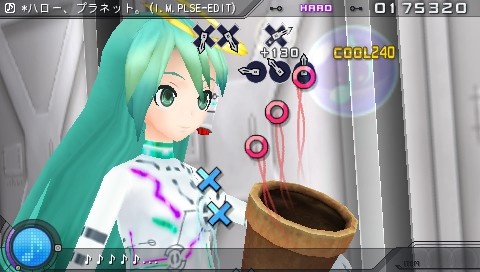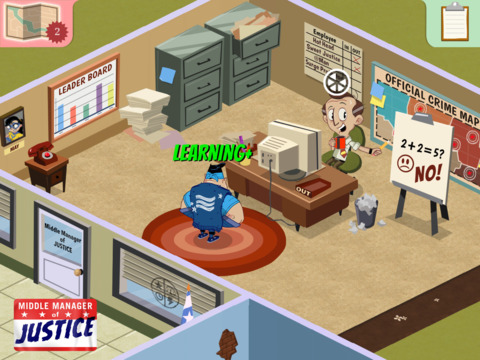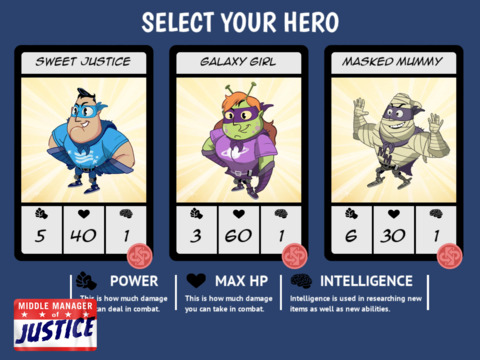Double Fine's Free-to-Play Experiment
Middle Manager of Justice project lead Kee Chi explains how his team is testing the waters of free mobile games.
Released last week on iOS devices, Middle Manager of Justice bears all the hallmarks of a Double Fine Productions game. It's witty, it's silly, and at no point does it take itself seriously. But this tongue-in-cheek depiction of what it's like to manage a team of superheroes does represent one key change of pace for the San Francisco developer: it's the studio's first foray into the increasingly popular free-to-play market.
Middle Manager of Justice is the brainchild of Kee Chi, a gameplay programmer at Double Fine who previously worked on Psychonauts, Brutal Legend, and Stacking. I caught up with Chi earlier this week to get his take on exploring this new business model.
Origins of an idea
According to Chi, the game concept came about last year during an Amnesia Fortnight event, Double Fine's regular series of internal game jams where employees come up with quick prototypes and pitch them to the rest of the studio. "At that stage we didn't think at all about what business model the game would fall under," says Chi. "It was more about the game's mechanics and how to make it fun."

That's a tall order considering that "fun" is probably the last word most players would associate with the life of a corporate middle manager. But while you do indeed play a balding, tie-wearing desk jockey, your place of work is anything but ordinary. Middle Manager of Justice has you running a regional branch for the fictional Justice Corp, training superheroes in the ways of cold, hard justice and sending them to battle against thugs, henchmen, and evil masterminds.
According to Chi, he and his team were highly conscious of avoiding the dreaded paywall, that familiar artifice in free-to-play games where players eventually face no choice but to spend money if they want to continue their progression through the game.
"In a video game, you provide a challenge so that the player makes choices to advance and have fun," says Chi. "But in a free-to-play game, I think there's this specter there saying, 'This is how far you can go. This where I expect you to pay me.' That idea was never in play."
Spending money to make money
Instead, Middle Manager of Justice employs microtransactions that essentially function as a fast-forward button for player progression. Keeping the citizens of the world safe will reward you with coins, which you can spend on upgrades ranging from treadmills for improving your heroes' physical abilities to a rec room television to boost morale. There's also a secondary currency called Superium, which is used to purchase new heroes.
Both currencies are acquired in-game over the course of normal play, but if you want to cut down on the time it takes to acquire either one you can spend anywhere from $0.99 to $19.99 for an instant infusion of cash. But where this game differs from so many free-to-play titles it that you almost have to go hunting through the menus to make such a purchase. At no point in my time playing the iPad or iPhone versions have I seen a pop-up alert encouraging me to spend a few bucks for more Superium.
It's as though the paid options were an afterthought. And in many ways, they were.
"There's nothing behind a total paywall" says Chi. "Whenever I balanced the game, it was never with extra currency [in mind]. I would always play it from the standpoint of the free player."


Talking to Chi, it's hard to escape the idea that Double Fine's delicate approach to this business model comes from a position of luxury not all mobile developers enjoy--insofar as you can describe Double Fine's status as an independent developer in today's gaming climate as "luxurious." But fresh off a $3.3 million Kickstarter campaign and a stable of other PC and console projects, this is a studio that can afford to simply get its feet wet in the free-to-play space. (It also helps that the game is a relatively low-overhead endeavor--it began with a team of just three people.)
I ask Chi how gung ho Double Fine is about free-to-play and he's quick to point out that this is hardly the default business model moving forward. "It's definitely an experiment for now," Chi assures me. "I wouldn't consider it a default model for Double Fine. We try so many different things here that having a default anything doesn't make sense! It made sense to try it out for this game at this particular time. Who knows what we'll be doing in the future. We'll be focused on making fun games first!"
But as for the immediate future, Chi will continue to support Middle Manager of Justice with ongoing content. "There's definitely more stuff coming," says Chi. "In January, we're going to add story-based boss fights from the last two areas and a new hero. And we'll keep [adding more] in the coming months."
"Obviously if the game's making no money, we can't really do that," he jokes. "But hopefully that's not the case."
Got a news tip or want to contact us directly? Email news@gamespot.com
Join the conversation